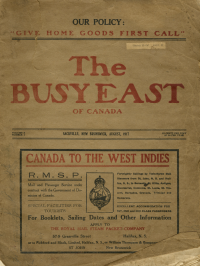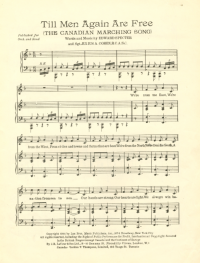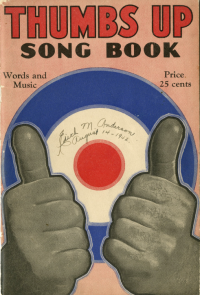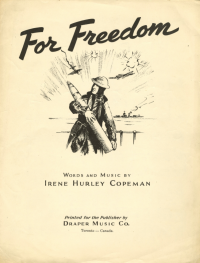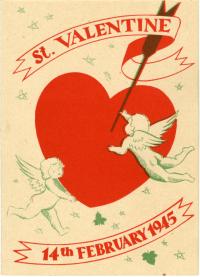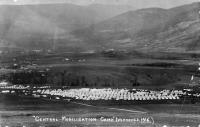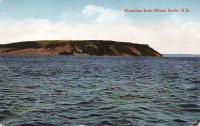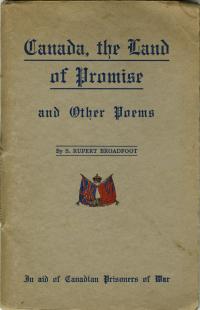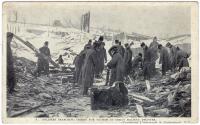Relaxing
Business news ... and poetry
Once the reader was finished with this copy of The Busy East, printed in Sackville, New Brunswick, it was turned into a scrapbook for saving war poems printed in local newspapers.
Till Men Again Are Free
This song was released in 1941 during the Second World War as an anthem for people all across Canada to sing. This song inspired feelings of patriotism and pride for the singers, and more generally encourages national unity.
Thumbs Up Song Book
This book was published in 1942 by Marlo Music Corporation. It includes dozen of patriotic and war-themed songs such as There'll Always Be An England and God Save the King.
"For Freedom"
This song was written by Irene Hurley Copeman during the Second World War. The lyrics were intended to evoke national pride in the singers, and to remind them what was at stake - the safety and prosperity of the British Empire.
Valentine's Day Greetings
In 1945, a loving son sent this Valentine's Day card to his mother in Ingersoll, Ontario. Distributed by the Salvation Army and sent from Italy, it conveys all the love and well-wishes of a son keen to return home after service overseas.
Camp Vernon, BC
Camp Vernon in British Columbia served as a training camp and a central mobilization centre in May 1915. By 1916 there were over 7000 men training at the camp.
Regrets at Aldershot
A possibly conscripted soldier only identified as Sam H., wrote from military Camp Aldershot in Nova Scotia, that the battalion was leaving the very next day in July 1918. He expressed his fear of going overseas and not returning home to his significant other, Emma.
"Canada, the Land of Promise"
In 1916, S. Rupert Broadfoot published this book of poems in aid of the Canadian prisoners of war overseas.
"A Fellow on a Furlough"
This song about a young man on a furlough was featured and popularized by the movie "Meet Miss Bobby Socks", a musical comedy film about a soldier returning to North America after service abroad.
Halifax Explosion 1917
The Halifax explosion of 6 December, 1917 was caused by the collision of two ships in the harbour, one contained artillery and explosives bound for Europe, which resulted in an intense explosion, and subsequent tsunami. Nearly 2000 people were killed by the explosion and its after effects, while nearly 9000 people were injured.

